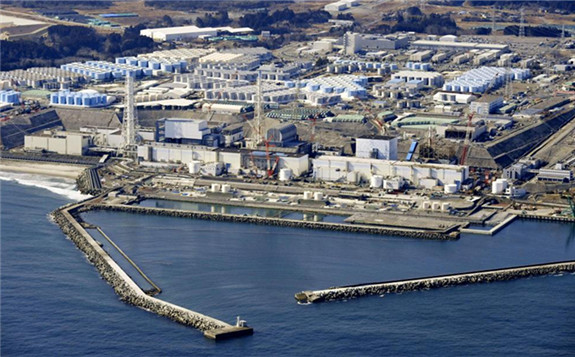Research shows that radioactive substances that flowed into the ocean due to the Fukushima nuclear accident in 2011 have reached the Arctic Ocean and a Chinese expert warned against the danger of the spread of the radioactive substances in the ocean and called on Chinese authorities to collect data on radioactive substances as evidence to defend its maritime interests while the Chinese Foreign Ministry urged Japan to revoke its decision to release contaminated water from the Fukushima nuclear plant.

According to the latest study of Yuichiro Kumamoto, a senior researcher from the Japan Agency for Marine-Earth Science and Technology, radioactive Cesium-134 has reached the Arctic Ocean eight years after it leaked into the ocean due to the Fukushima nuclear accident in 2011, Kyodo News reported on Tuesday. Cesium-137 also arrived in the Arctic Ocean, according to the researcher.
A small amount of the radiocesium was detected and Yuichiro speculated that it had spread to the center of the Arctic Ocean.
The tritium in the contaminated water that Tokyo Electric Power Company plans to discharge will likely follow the same path, Kyodo News said.
Zhang Yancang, director of the Yellow Sea and Bohai Sea Research Institute of Dalian Maritime University told the Global Times that the possibility exists that the radioactive material was brought through the ballast water in ships, which would be horrible.
Zhang explained that the ballast water in ships needs to be replaced regularly. If the ship takes in new ballast water in a port near Japan, it might carry water with radioactive material and release it somewhere around the world, which is unpredictable.
Zhang who didn't expect the radioactive material to reach the Arctic Ocean so quickly said that it remains to be seen if the ocean current could speed up the spread of the radioactive material.
China should start collecting data of the amount of radioactive substances before and after Japan dumps the radioactive water in 2033 as evidence to help defend its maritime interests, he said.
"This is not the first report that confirmed that radioactive substance from the Fukushima nuclear accident had been detected in the Arctic Ocean. The research results of researchers at Tsukuba University released in November also found that Cesium-137, a radioactive substance that flowed into the sea in the Fukushima nuclear accident, was detected in the Arctic Ocean," Zhao Lijian, spokesperson of the Chinese Foreign Ministry, said at Wednesday's media briefing.
These findings of Japanese scholars clearly illustrate the fact that the radioactive substances leaked from the accident at the Fukushima nuclear power plant have spread to the Pacific Ocean and the Arctic Ocean and may affect waters around the globe, he said.
"If the more than 1.2 million tonnes of nuclear contaminated water is discharged into the Pacific Ocean as planned by Japan, it will have an impact on the marine environment in the whole region and even the world. Is this the kind of consequence that can be born by Japan alone?" Zhao said, urging Japan to take a responsible attitude toward the marine environment and humanity's health, revoke its wrong decision of ocean release and stop the preparatory work for the discharge.